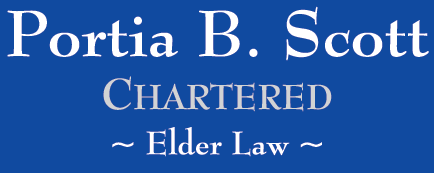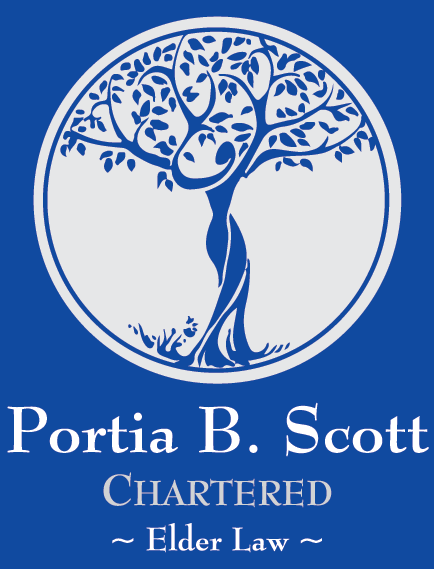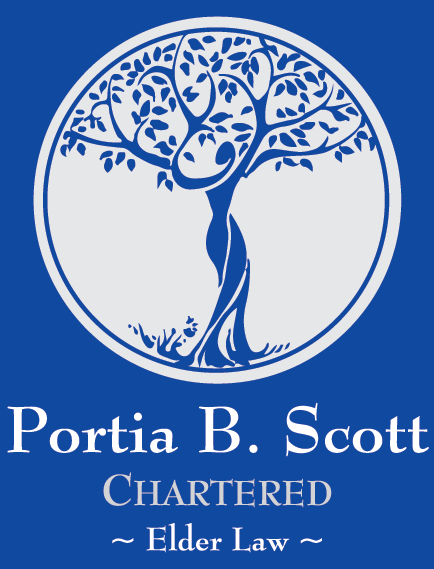Portia B. Scott, J.D., L.L.M.
Portia has a deep affection for the elderly borne through personal and professional ties..
She started her practice with her Father, William R. Scott, an attorney in Stuart since 1949. After her mother, Catharine "Casey" Scott, retired from teaching and her father fully retired from the practice of law in 1997, they spent their summers in the mountains of North Carolina and winters in Stuart. As the years went by, their needs changed and Portia had a front row seat to each one of the changes. A World War II Veteran, William had earned certain entitlements from the Veterans' Office. Having paid into the Social Security System, her parents were entitled to benefits there, too. Recognizing that she was going to learn about such things as they applied to her own family, Portia decided to go back to law school at age 52. The education and life experience Portia received allowed her to help her parents for the rest of their lives. This same experience she now uses to help others.
A key component in Elder Law is ensuring the dignity of the elderly are preserved.
Catharine lived to be 84 and William, 96.
Graduate
Martin County High School
Florida Atlantic University - B.A.
Stetson College of Law - J.D. Cum Laude
Stetson College of Law - L.L.M. in Elder Law
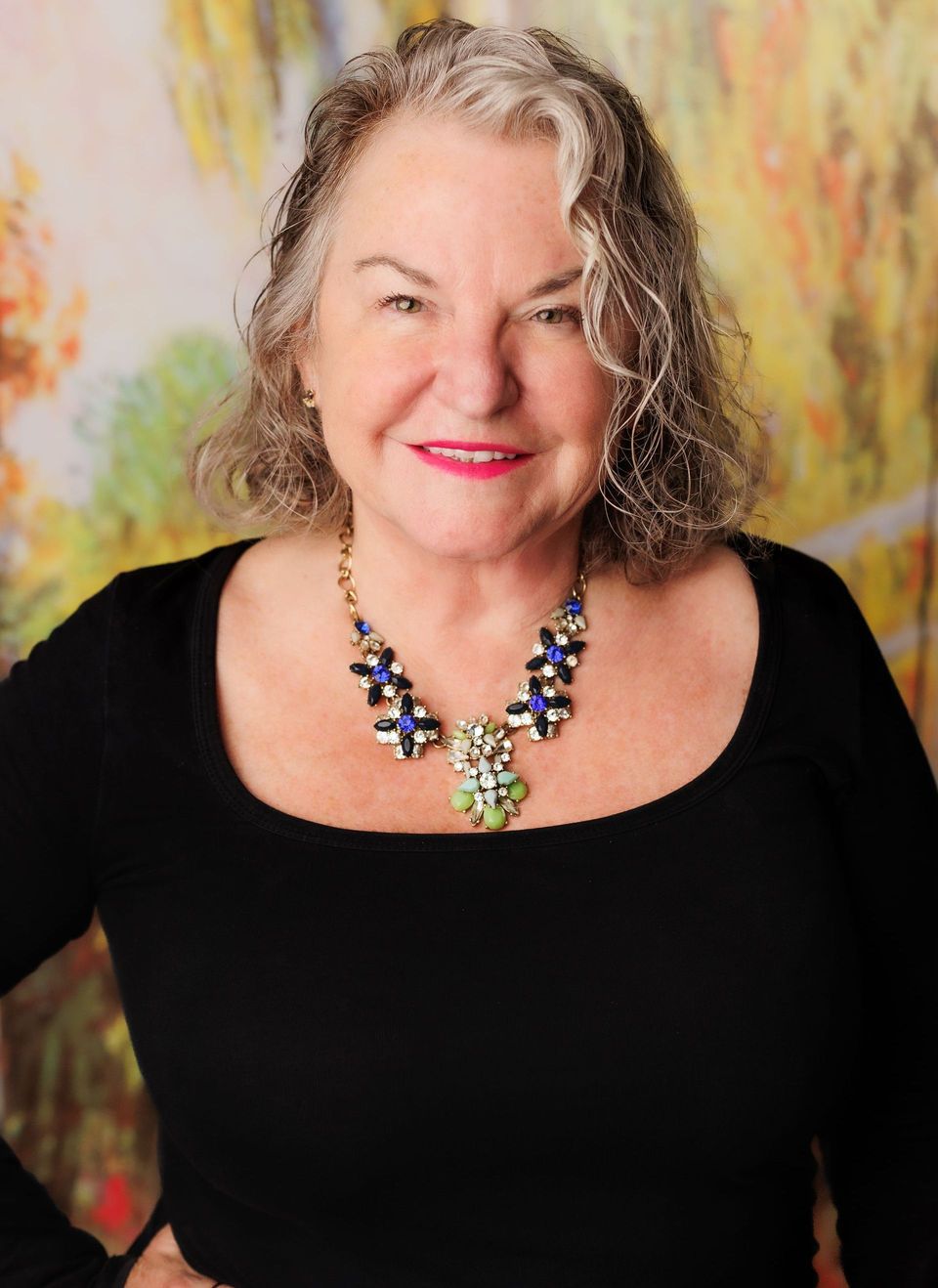
Slide title
Write your caption hereButton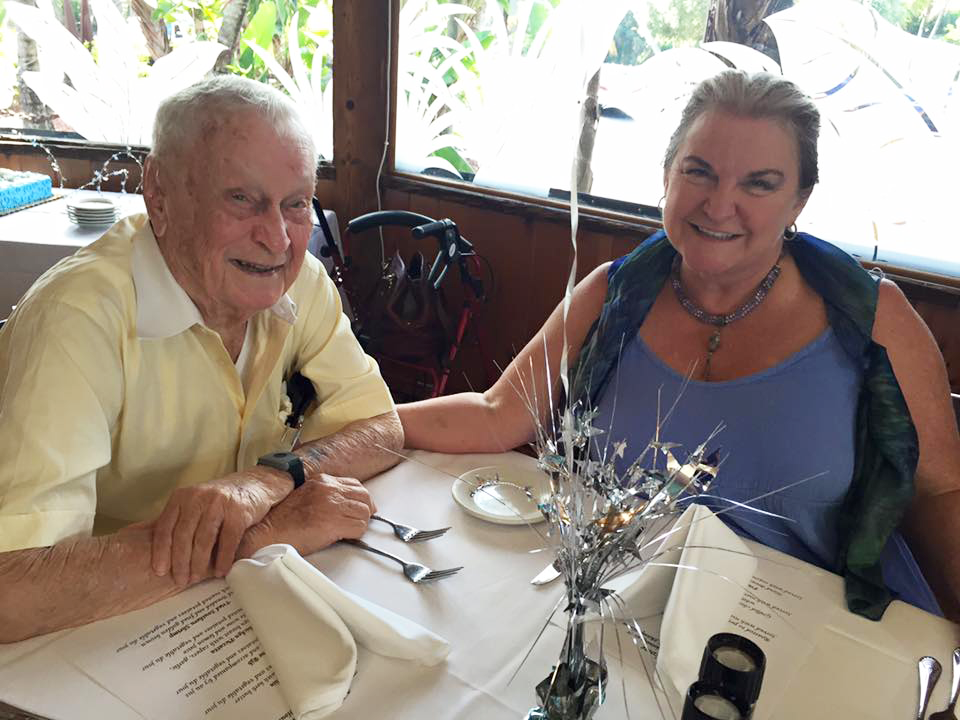
Slide title
Write your caption hereButton
FAQs
- What is Elder Law?
Elder Law is a bit of a "catch all" term and includes matters not restricted to the Elderly, such as Estate Planning, Trusts, Wills (revocable, irrevocable, Special Needs Trusts, Qualified Income Trusts and Testamentary Trusts), Health Care Surrogate Designations, Powers of Attorney, Living Wills and Pre-Need Guardianship Declarations.
Also included in phrase Elder Law as practiced in our office are Incapacity actions, Voluntary and Involuntary Guardianships (both limited and plenary), Probate proceedings (formal and summary), Medicaid Planning which might include Personal Services Contracts, strategic gifting and real estate transactions as part of an overall plan.
We also can discuss - though we do not sell or otherwise profit from - the usefulness of Long Term Care Insurance, Single Premium Immediate Annuities and other sometimes useful tools provided by others.
In short: Elder Law is a term which covers a host of topics, not all of which are needed by everyone.
- What is Probate and should we avoid it?
Probate is the legal process of distributing a person’s assets once that person has died.
The dead person (“the decedent”) may have had a Last Will and Testament. If so, and if it was drafted and executed appropriately, the Will is submitted to the Court. A decedent who had a valid Last Will is considered to have died “testate.” A decedent who did not have a valid Last Will is deemed to have died “intestate.”
If a decedent dies intestate, the laws address who gets what. These heirs are determined by their marital and/or blood relationship to the decedent.
Even though a Last Will may have nominated someone to administer the estate, that person has no authority until a Judge appoints him or her. Once appointed, that person becomes the Personal Representative and is then empowered by the State of Florida to take possession of the decedent’s assets, make an inventory of them, contact the decedent’s creditors and pay the legally enforceable debts and, after waiting the prescribed time for other creditors to make a claim, pay the claims in the order determined by the Legislature. After reporting to the judge periodically, the Personal Representative then can make final distribution of the assets of the decedent according to the terms of the Will. This is called Formal Administration of a Probate Estate.
Sometimes, there are so few assets or the decedent has been gone for 2 years, that the process is sped up and no Personal Representative is appointed at all. This is called a Summary Administration of a Probate Estate. Though it moves very quickly, it does leave the decedent’s creditors with the authority and ability to pursue the beneficiaries directly for the debts of the decedent, up to the amount inherited.
As with everything in life, there is a cost and a benefit.
The costs of the Formal Administration include time (the process usually takes about 6 months or more, depending on the issues involved) and money since there are more steps which must the followed and the Personal Representative is entitled to a fee for all of her work. The benefits include certainty that what is ultimately delivered to an heir is that heir’s free of any claim from anyone.
The costs of Summary Administration include the threat of the decedent’s creditor coming after the heir for the debt and, therefore, wondering what can be done with the inheritance whereas the benefits include having a very speedy administration, sometimes as quickly as a couple of weeks.
Each case has to be examined to determine the most appropriate route to take to achieve the decedent’s wishes.
- What is a Ladybird Deed?
Deeds are used to transfer some or all of ownership between people.
Before there were deeds used by ordinary folks instead of just the aristocracy, when one man wanted to sell a piece of property to another, they would gather a couple of 11 to 12 year old boys and take them to the property being sold. The Seller would reach down and grab a handful of the soil and hand it to the Buyer. The two of them would then whip the children harshly so the boys would remember, well into adulthood, the acts of that day should the ownership by the Buyer ever be called into dispute. This was called “livery of seisin,” or, more properly, “livery of sasine.”
To the relief of all young boys in rural communities, this brutish procedure is outdated today and has not been used for centuries.
Now, we use Deeds.
There are several types of deeds and one of special usefulness to the Florida Elder Law practitioner is the “Ladybird” Deed. The Ladybird deed allows the Grantor (the person who owns the property in question) to transfer a future interest in the property once the Grantor dies. This is also called an “enhanced life estate” deed. The Grantor keeps all the rights to the property, including the right to undo the Deed and to sell the property and keep all of the proceeds. However, assuming the Grantor does not sell the property and does not undo the Deed, upon the Grantor’s death, the simple recording of the Grantor’s death certificate will soundly transfer full ownership to the named others in the Deed.
So, if Mother executes a Ladybird Deed, as Grantor, as one of the Grantees she would keep her “enhanced” life estate but, when her life ended, so does her “life estate.” The other Grantees, for instance her daughter and son, become the owners of what remains of the property, in this case, all of it.
A Deed which creates a life estate in one person divides up the ownership into two parts: a part owned - in this case - by Mother as long as she lives and a part that starts upon Mother’s death and lasts forever.
Because, in this example, Mother continues to own 100% of the property during her lifetime, she is still entitled to any benefits she may hold because of homestead status of the property.
On non-homestead property, a Ladybird Deed, since it terminates the Grantor’s ownership upon the Grantor’s death, leaves nothing for the Grantor’s creditors to come after.
A very useful tool indeed.
- Do I need a Trust or a Will?
The answer any attorney will give when asked a straight-forward question invariably is: it depends.
This is never more true than when deciding about Wills, Trusts, how they work together and how they work separately.
A Will explains your wishes about what you want to have done with anything you die owning.
A Trust dictates what happens to assets you put into the Trust.
If you remember to put everything you own in your own name (not jointly with another person) and which is not in a “transfer on death” or “pay on death” account) into your Trust, then it is possible to avoid probate and the expenses associated with it.
There are always exceptions, of course. For instance, a lawsuit for the way you die (say, nursing home abuse or an automobile accident where you are killed by a distracted driver) can only be brought by your Personal Representative who is someone appointed by a Judge in a Probate proceeding. This will not avoid probate for the proceeds from the lawsuit when your Personal Representative is successful.
Most people who have a Trust also have a Will which nominates a Personal Representative and directs any assets of the Estate be paid over to the Trust, just in case there are assets so far un-transferred into the Trust during life.
Not everyone needs a Trust and, surprisingly, not everyone needs a Will. A married person with no children who wants everything to go to the spouse does not need a Will; the intestate statutes will address that.
With probate, the monetary expense is incurred after death. With a Trust, it is incurred during life.
These are in-depth conversations and at The Elder Law Offices of Portia B. Scott, Chartered, we can cover all of the nuances to help you make the right decisions for you and your loved ones.
- What areas do you serve?
Martin County, St. Lucie County, Okeechobee, Hutchinson Island, Sewall's Point, Palm City, Stuart, Jensen Beach, St. Lucie West.
Reach out today!
We will get back to you as soon as possible
Please try again later
